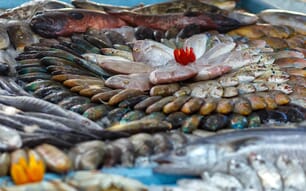According to a report from the Institut de Reserche pour le Developpement (IRD) because of the changes in the fish availability the South Pacific Islands could turn to aquaculture and fresh water fisheries as traditional sea fishing areas come under threat.
The IRD research published in the journal Nature Climate Change says that isolated in the middle of the ocean, the Pacific islands rely heavily on fishing for theireconomy and food security.
However global warming could reduce the accessible fish resources in the coming years.
The scientists studied the response of the fish biomass to climate change in the Pacific, according to the forecasts of the intergovernmental panel on climate change (IPCC).
The IRD research backed by the Secretariat of the Pacific Community (SPC) and their French, Australian and American partners said that fishing for skipjack in particular, which makes up 90 per cent of catches, will be seriously affected.
According to the models, the rise in surface water temperature, greater in the western ocean, will lead to the migration of tuna towards eastern Polynesia.
This will see catchment areas move away from the Melanesian coast, the Salomon islands and Papua New Guinea.
The loss of tuna from the territorial waters of these countries will be a significant economic loss, the IRD report says as fishing rights paid by major international fisheries are an important source of revenue for these small island nations.
Along the coasts, the coral fish is also under threat.
The predicted ocean warming will increase coral bleaching leading to the death of numerous reefs.
Population growth in these territories, which has been preserved up to now, will also place a lot of pressure on coral ecosystems through exploitation, damage and pollution.
The recovery rate of coral reefs should fall from 40 per cent throughout the Pacific today, to 10 or 20 per cent in 2050 the report says.
According to the study, this loss will reduce by 20 per cent the quantity of coral fish, an essential resource for local populations.
However, the research team says that some Pacific islands could turn to aquaculture and fresh-water fisheries, because on land, the scenario is completely different.
The expected rise in rainfall, will increase the surface of lakes and rivers by 10 per cent by 2050, and this could help aquaculture and fresh water fisheries.
In their study, the scientists are encouraging the development of these sectors.
To make up for expected losses, they are inviting governments to facilitate access of local fishermen to tuna resources – for example by installing fish aggregation devices, sorts of floating pontoons that attract them, along the coast.
The report adds that other fish resources are still unexploited and could be drawn upon, such as mackerel, anchovy and sardine.
Minimising the risks by preserving reefs and maximising opportunities is a challenge that the public authorities of these small Pacific Nations will have to face in the coming decades to cope with climate change together with the increasing need of their growing population for fish.



